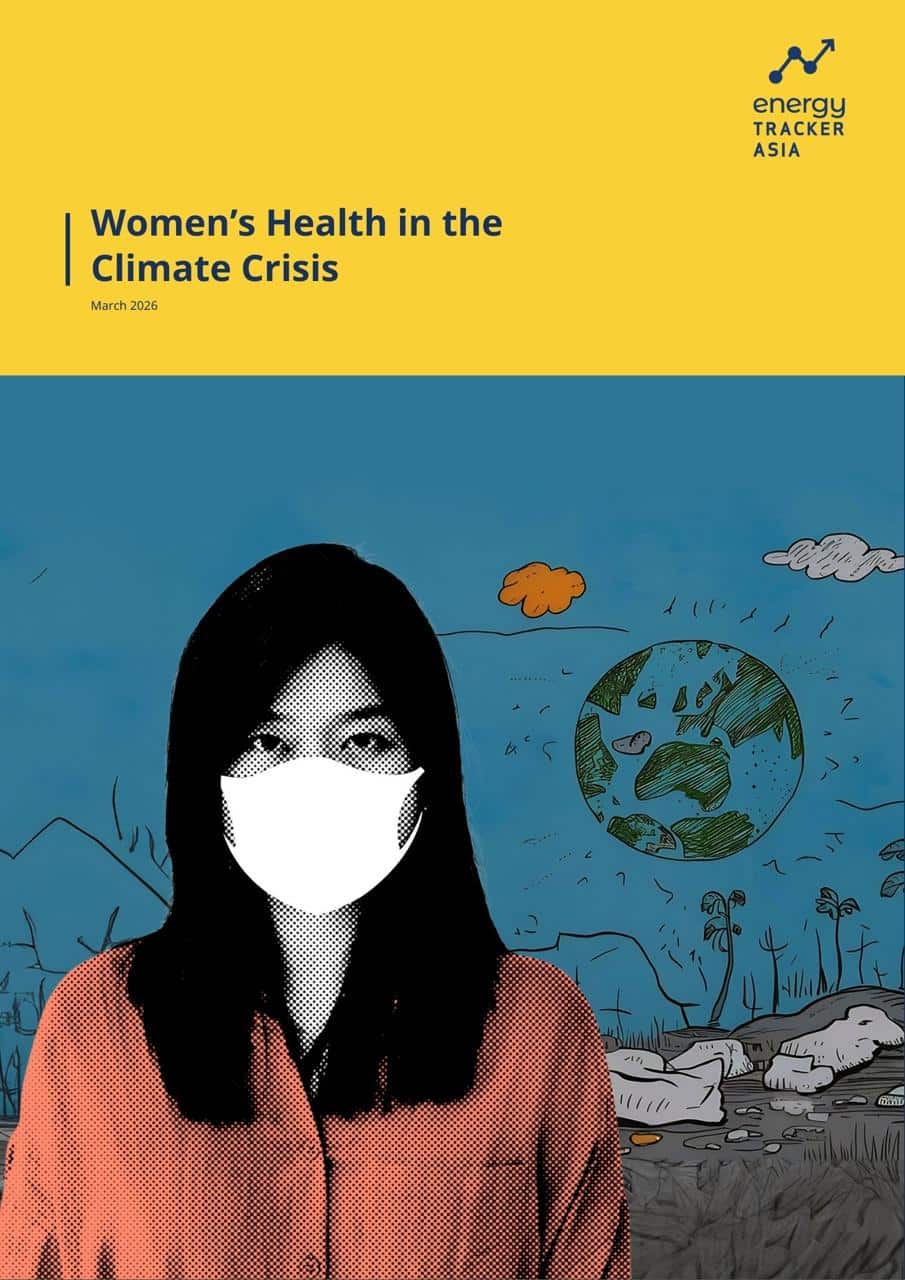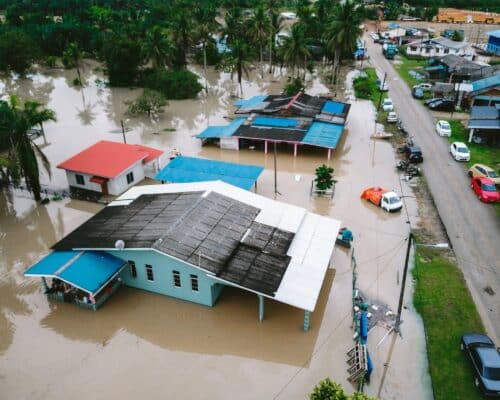IPCC’s 62nd Session in China Fails to Agree on Deadline For Next Climate Reports, Scientists Concerned
25 March 2025 – by Viktor Tachev
Ahead of the IPCC-62 meeting in Hangzhou, China, held at the end of February, the European Union, the UK and climate-vulnerable developing countries raised concerns about potential delays to the next global assessment of climate change and their costly impacts on the planet’s health. The meeting’s outcome proved that the concerns were grounded, with the risk of the next IPCC report not being completed in time to inform the next Paris Agreement stocktake in 2028 looming large. The IPCC 63 meeting later this year will give nations yet another, and probably the last viable, chance to break a deadlock that they have repeatedly failed to address since January 2024.
Key Outcomes From the IPCC-62 Meeting in Huangzhou, China
Although the 62nd session of the Intergovernmental Panel on Climate Change (IPCC) ended 30 hours after the meeting’s scheduled conclusion, parties still failed to agree on a timeline for delivering the reports that will inform the next Global Stocktake.
The reason is that countries remained divided on whether a timely completion of the reports was crucial. On the one hand, the UK, EU, Australia, Japan, Turkey and Jamaica (speaking on behalf of other small island developing states) pushed for a publishing deadline by the end of 2028 so that the work could inform the UN’s second Global Stocktake. On the other hand, parties, including the Chinese hosts, India, Saudi Arabia and more, raised concerns that a compressed timeline would negatively affect some nations’ participation, especially developing countries. The latter suggested completing the three reports between July 2028 and April 2029, with the Seventh Assessment Cycle (AR7) report to be finalised in the second half of 2029.
Report Outlines Agreed On But With Weakened Language
Despite the deadlock in agreeing on a timeline, the IPCC-62 meeting participants agreed on the outlines of the reports that each of the three IPCC Working Groups would work on for the AR7 report. This will allow the nomination process for the hundreds of authors taking part in the report to start, and it will enable the three working groups, each with a distinctive focus, to start planning ahead. These include WGI (physical science of climate change), WGII (climate change impacts, vulnerability and adaptation) and WGIII (carbon reduction and climate change mitigation).
However, according to representatives of the Union of Concerned Scientists, an IPCC observer organisation present at the meeting, some delegations intentionally pushed for weakening the scientific language or removing key terms and phrases in the outlines. Notable omissions include terms related to fossil fuels, the cost of inaction and subsidies — which were largely avoided or watered down.
Emphasis on Unproven CO2 Removal and Capture Technologies
The nearly 450 participants from governments, international organisations and civil society also discussed carbon dioxide removal technologies (CDR), including methods for marine carbon capture, and the Methodology Report on Carbon Capture Storage and Carbon Dioxide Removal. Some member states pushed back against the proposed outline for a carbon removal methodology report over concerns that nascent and poorly understood technologies would receive the same status as better-researched options.
“Governments at IPCC-62 were rightly wary of allowing the development of accounting methodologies for dangerous marine carbon removal approaches because the science simply isn’t there, and the risks are immense,” said Mary Church, senior campaigner at the Center for International Environmental Law.
“The Methodology Report on Carbon Capture Storage and Carbon Dioxide Removal was delayed due to increased concern over high risks speculative and unproven at scale techno-fixes that harm biodiversity health and real mitigation of root causes driving existential rates of global surface temperature rise,” added Lindsey Fielder Cook, interim deputy director and representative for climate change at the Quaker United Nations Office.
Saudi Arabia was reportedly among the biggest advocates for analysing the potential of CDR technologies.
New Workshops and Budgetary Matters Also Discussed
Delegates also discussed proposals for expert meetings and workshops, including those on engaging with Indigenous communities and learning from their diverse and critical knowledge.
While delegates also debated budgetary matters, the discussions took place over extended meeting hours when delegations from small island developing states and least developed countries were no longer present and couldn’t influence the final decisions.
The US Withdrawal From the Intergovernmental Panel on Climate Change (IPCC) Adds to the Uncertainty
The IPCC-62 session marked the first absence of the United States in IPCC history. After the Trump administration withdrew the US from the Paris Agreement and slashed funding and the federal workforce for climate-related tasks, it also halted the participation of US scientists in the IPCC meeting in Hangzhou, withdrawing just before the meeting started. Katherine Calvin, NASA’s chief scientist and senior climate advisor, who leads one of the three working groups was among those barred from travelling to China. Carbon Brief reports that NASA terminated the contract for the technical support unit for WG3, meaning the agency won’t be supporting the IPCC process moving forward. The IPCC says it hasn’t received any official communication on the Trump administration’s position and is awaiting “more clarity”.
Other countries became concerned that the IPCC report wouldn’t be completed in time to reflect national progress and that it would impose tougher measures to tame rising emissions in the second stocktake. During the first one at COP28, nearly 200 nations agreed to transition away from fossil fuels based on the IPCC’s previous report, although they are yet to walk the talk even a year and a half later.
Carbon Brief estimates that the US has provided around 30% of the voluntary contributions to IPCC budgets since its establishment in 1988, or over four times the financing provided by the next-largest direct contributor, the EU.
According to one person familiar with the matter, interviewed by Bloomberg, while the Trump administration’s move is unprecedented in the IPCC’s history and will almost surely cause delays in its work, a government or philanthropic organisation could possibly step in to fill the funding hole.
Around 18% of IPCC authors have been from the US — over twice the next biggest national contributor, the UK, Carbon Brief finds. While the Trump administration has prohibited US scientists from participating in the IPCC meeting, they can still work on the AR7 report if nominated through other channels, such as observer organisations.
According to Delta Merner, lead scientist of the Science Hub for Climate Litigation under the Union of Concerned Scientists, a diminished American role could reduce the overall breadth of expertise at a time when rigorous global assessments have never been more critical. “We need all hands on deck to tackle the escalating climate crisis,” the expert warns.
Still, Cook notes that, despite the sudden and aggressive departure of US involvement in multilateral spaces causing much concern, the absence of a US delegation boosted international cooperation, enabling less powerful countries to step up and step in at the IPCC-62 meeting.
IPCC 62 China: The Failure to Agree on a Timeline Risks Undermining Global Efforts
In a video message during the IPCC 62’s opening, Inger Andersen, UNEP’s executive director, warned that “every degree, every day, every week counts”. WMO’s Deputy Secretary-General further stressed the importance of the AR7 reports and warned of the high costs of inaction. Still, despite the urgency, parties failed to agree on a timeline in line with the planetary emergency.
The past year became the hottest on record, with global temperatures being 1.55°C higher than pre-industrial times. Worryingly, the past 10 years have all been in the top 10 for the warmest in history. Since the last major IPCC report came out in 2023, global greenhouse gas emissions have only continued to increase, reaching a record high in 2024.
According to estimates, current climate policies will result in 2.7°C of warming by 2010. Some studies estimate that warming of 2-3°C could cause between 2 and 4 billion human deaths and a 25-50% loss in GDP.
The IPCC-62 meeting’s failure to agree on timelines is a major stumbling block for global efforts since it makes it uncertain whether the reports would be available to inform the next UNFCCC Global Stocktake in 2028 and enable policymakers to rely on up-to-date science for policy discussions.
“The urgency of the climate crisis from the members of the IPCC, just after 2024’s record temperatures, should have been greater,” says Stephan Singer, senior global specialist in climate science and energy at the Climate Action Network-International.
The fact that this was the third time governments had failed to agree on a timeline for the AR7 report further fueled the disappointment. The continued lack of progress in accepting a timeline is a massive blow to the nearly 100 vulnerable countries, which signed several diplomatic statements urging progress.
According to one climate scientist interviewed by Carbon Brief, the lack of a timeline threatened to put contributing scientists into “a difficult position”, while some IPCC authors argue the turbulent developments on the geopolitical stage are undermining the importance of climate science.
“Overall, the IPCC should not have done the discussion on the timeline in the last minute of the meeting. They could have done that in July 2024 in Sofia, Bulgaria, and we could have saved more time for consultation, research and discussion at this meeting,” said Singer. “Now, we don’t know whether the proposed timeline will be agreed. We lost one and a half years and now must make up the time.”
IPCC-63 Should Overcome Political Division For the Common Good
The IPCC reports are crucial in providing the scientific basis informing policy action — the single-biggest difference-maker in the global mission to slow global warming down, mitigate climate change’s worst impacts and protect the most vulnerable. They are invaluable in fueling the climate dialogue and assisting governments in crafting responses to the climate crisis.
Still, the lack of progress at IPCC-62 highlighted a clear division line. Countries with ambitious climate targets and nations gravely threatened by the worsening of the climate crisis advocated for kick-starting work on the reports and agreeing on a timeline as soon as possible. On the other hand, fossil fuel superpowers and climate laggards, including Algeria, the Russian Federation, India and Saudi Arabia, known to oppose any efforts to advance global emissions-reduction efforts, derailed progress.
“Failing to reach a decision on the AR7 timeline only serves those who wish to hold back climate action, but climate-vulnerable countries cannot wait,” said Zhe Yao, global policy advisor at Greenpeace East Asia. “It’s a bitter disappointment every time when division leads to a decision being postponed or kicked down the road.”
The IPCC 63 meeting, which would convene later in 2025, would prove the last viable opportunity for parties to finally break the deadlock and agree on a timeline to begin the essential work on the most critical climate science work of our lifetimes. If the politicisation of climate science continues to play a role, scientists’ worst-case models will get a step closer to being the most probable scenarios.
“We urgently need to focus on real solutions that put people and planet over corporate interests and business as usual,” urged Church, “a just and equitable fossil fuel phaseout, sustainable production and consumption, and ecosystem restoration, now.”
by Viktor Tachev
Viktor has years of experience in financial markets and energy finance, working as a marketing consultant and content creator for leading institutions, NGOs, and tech startups. He is a regular contributor to knowledge hubs and magazines, tackling the latest trends in sustainability and green energy.
Read more





